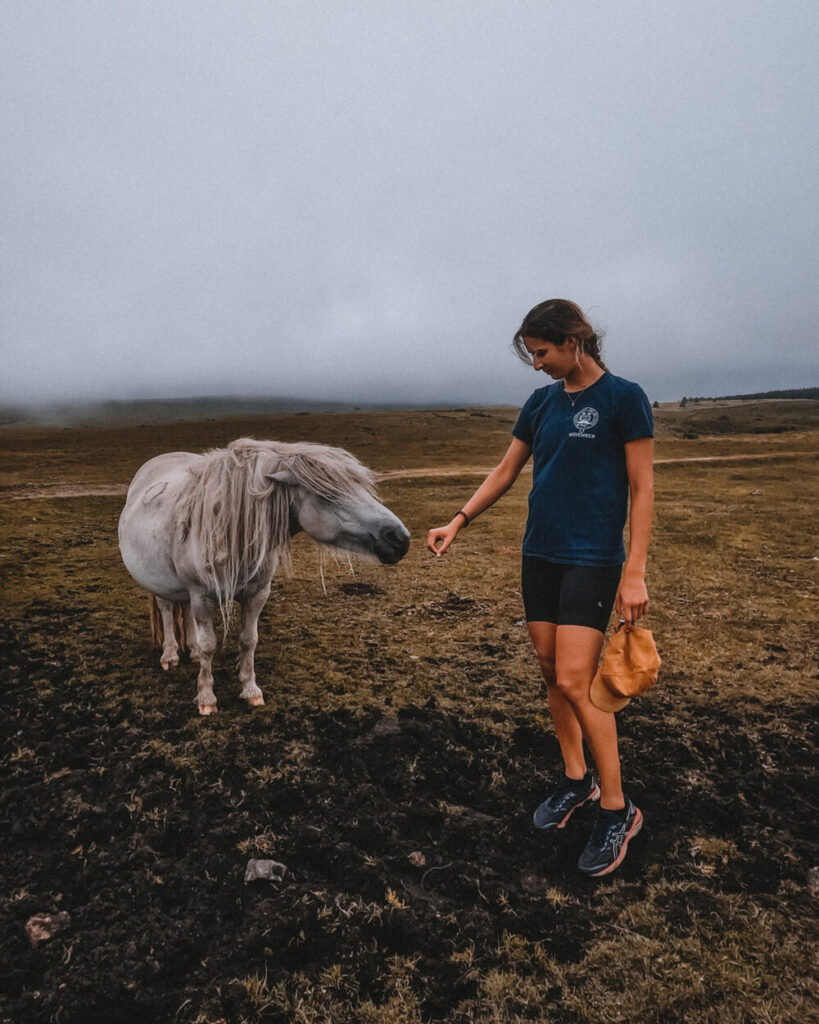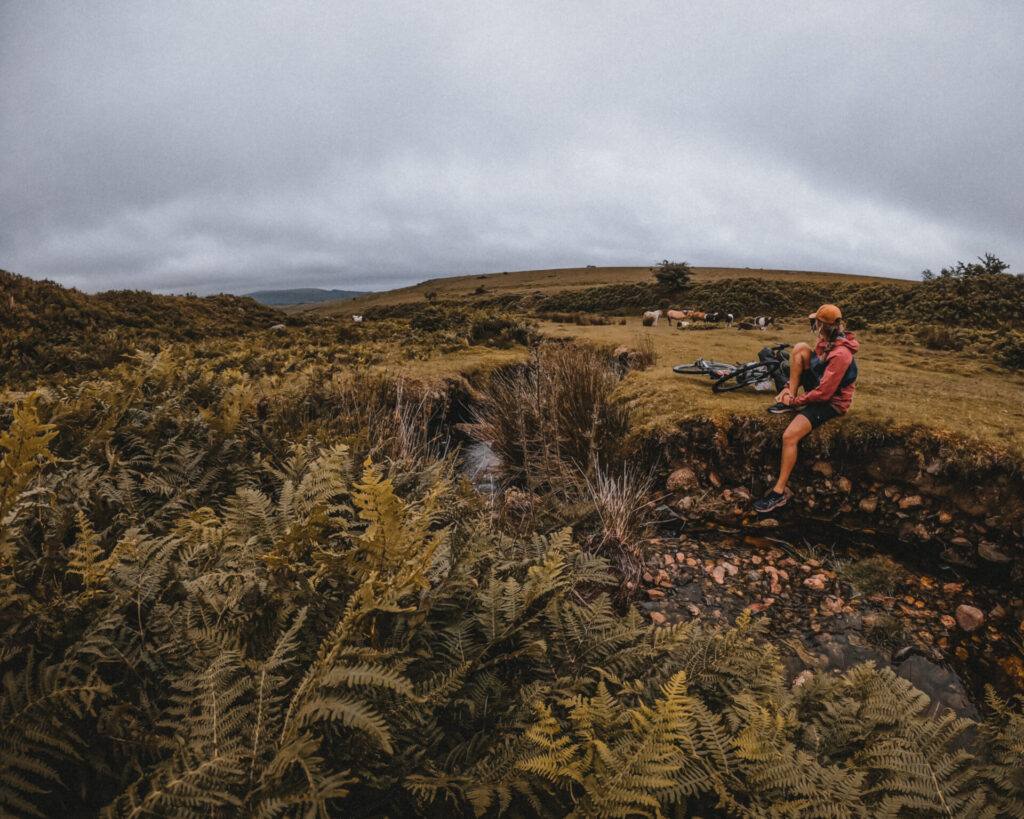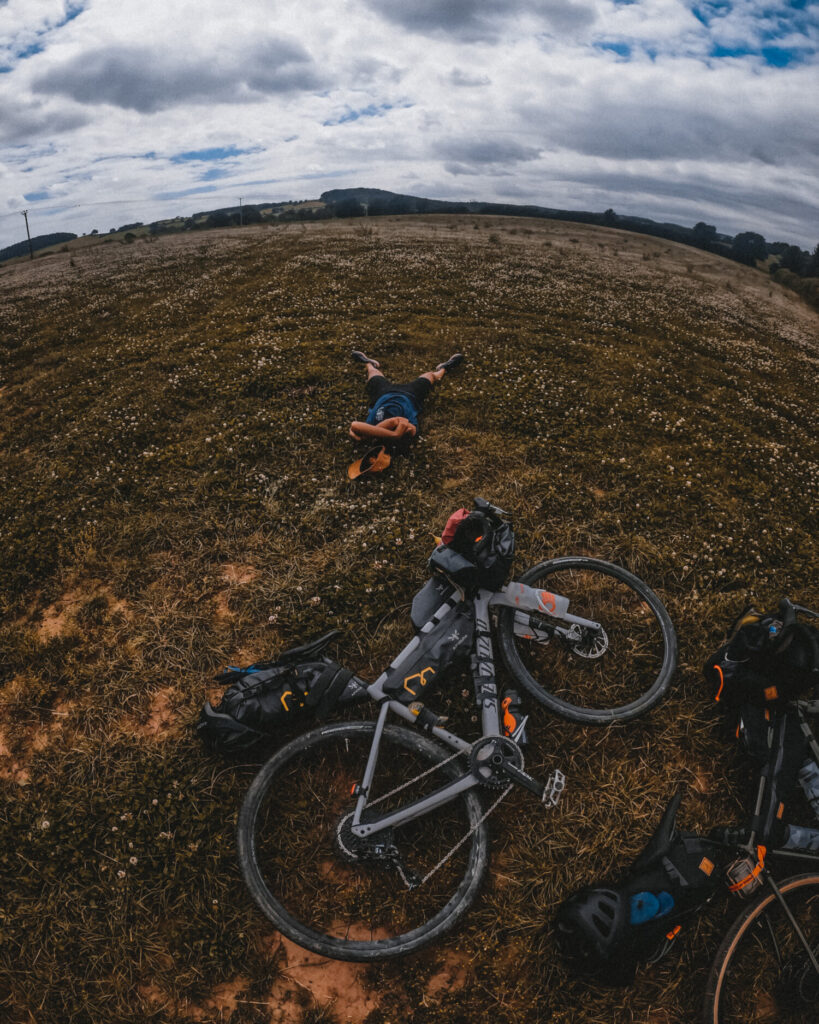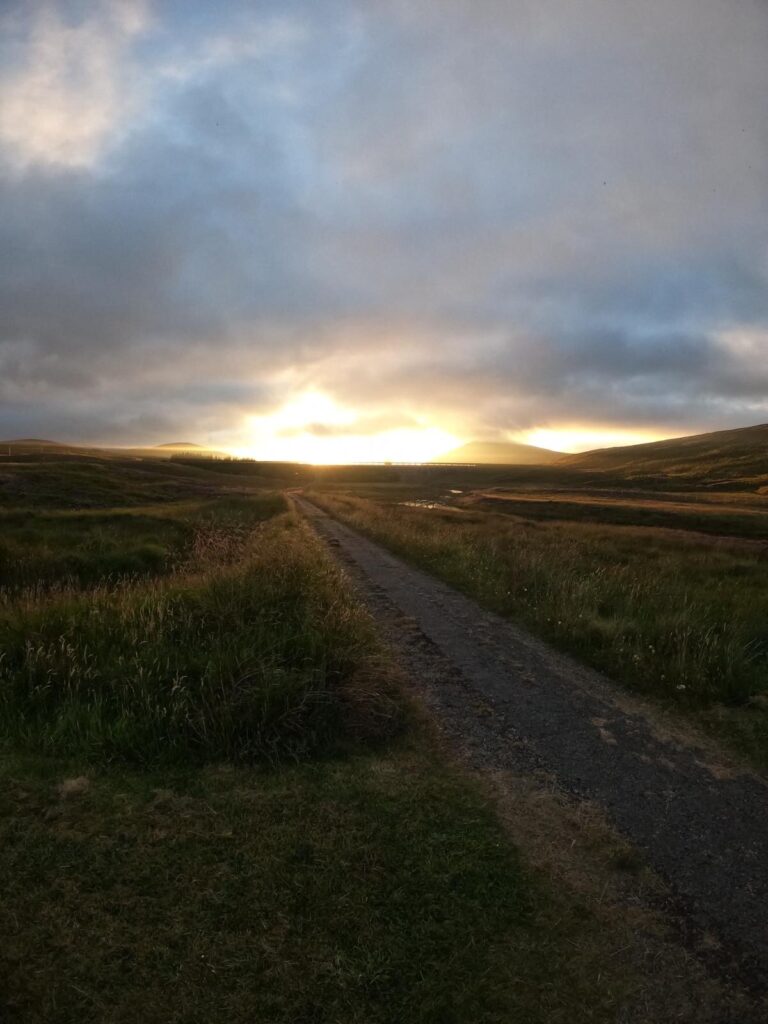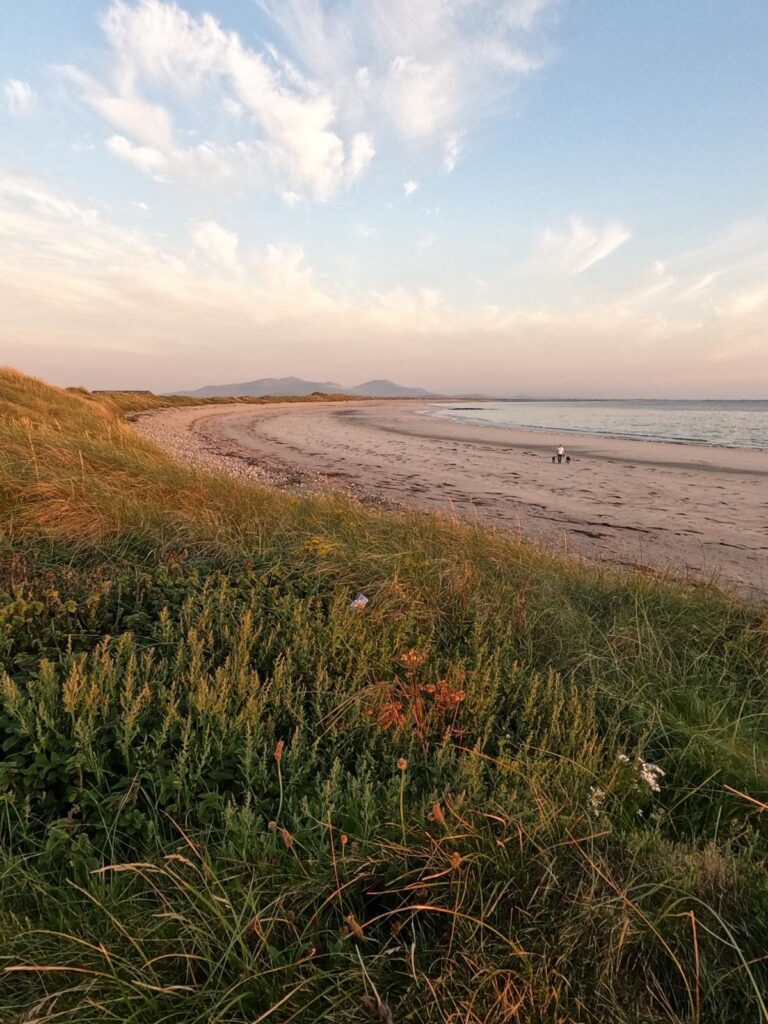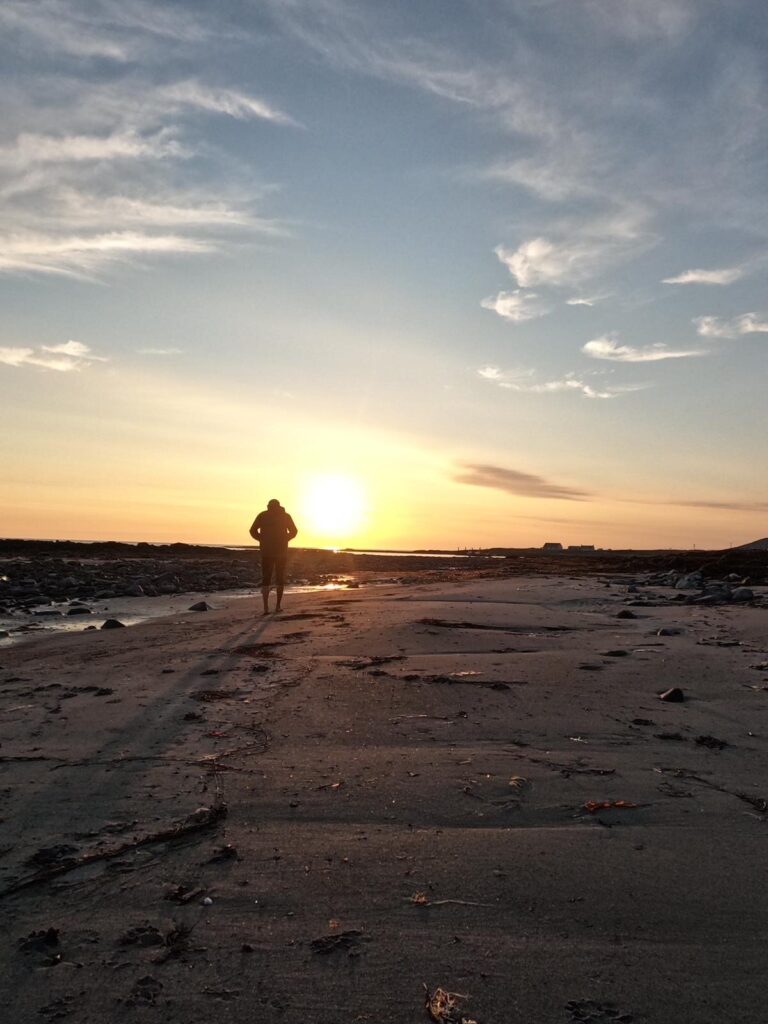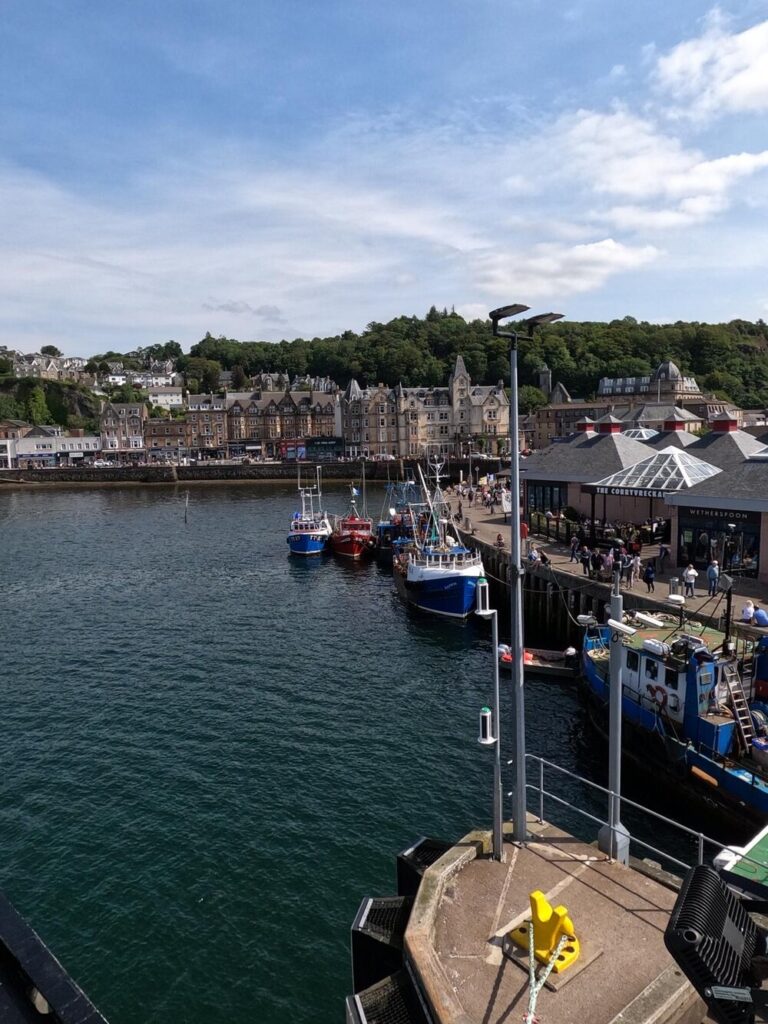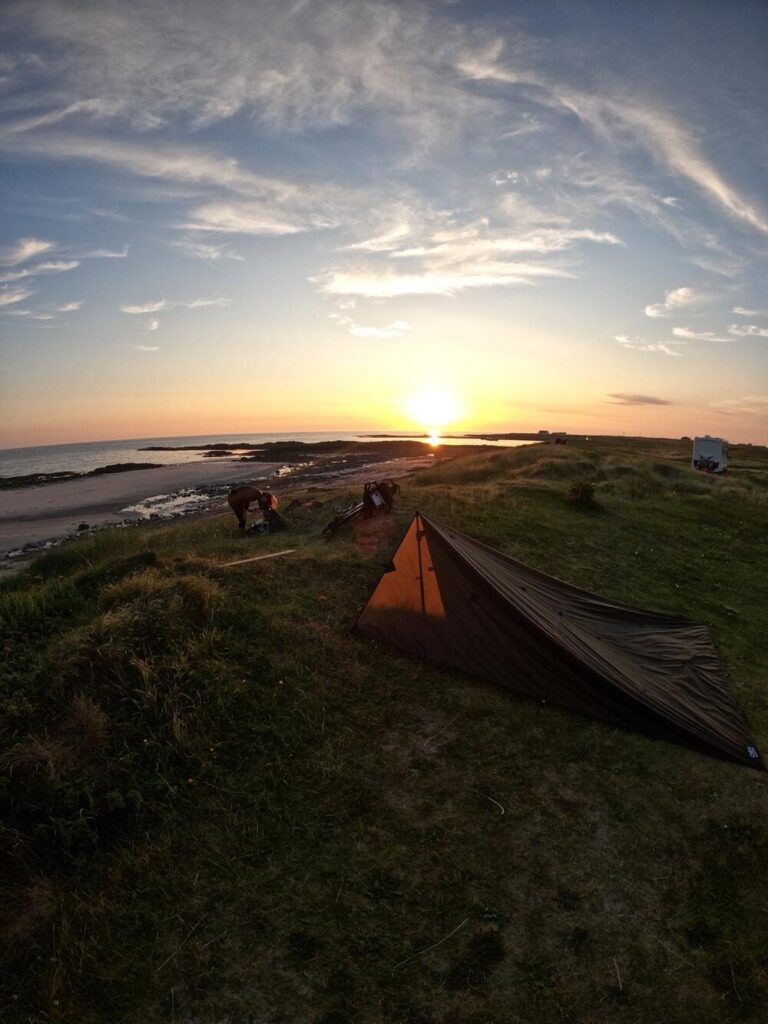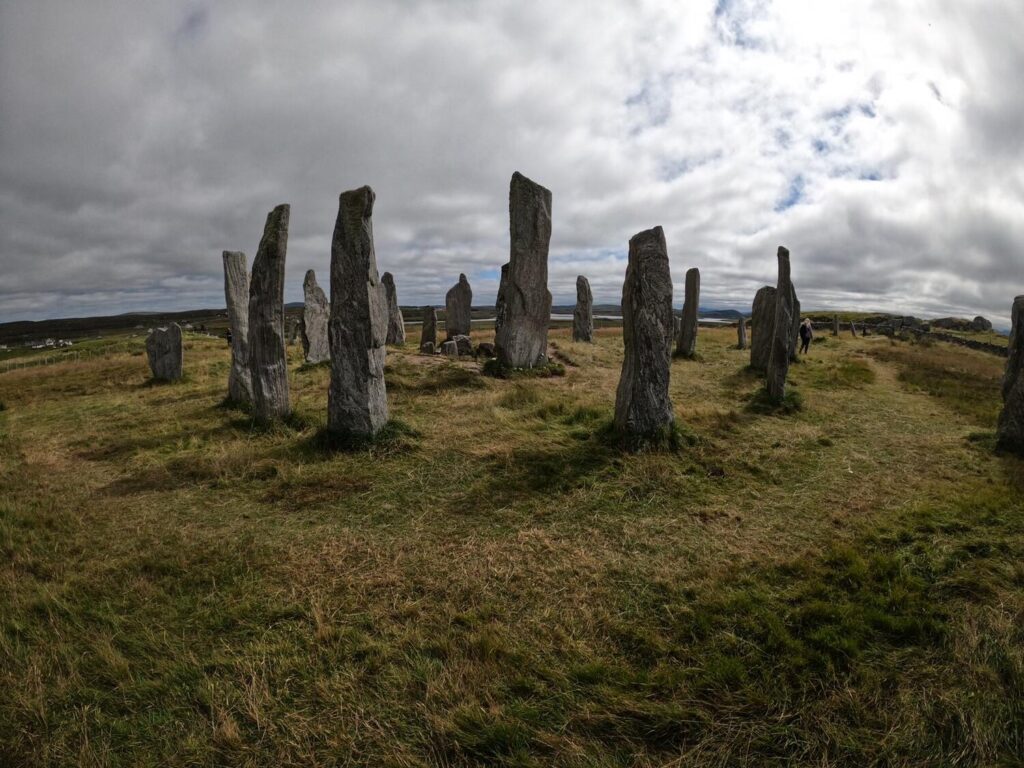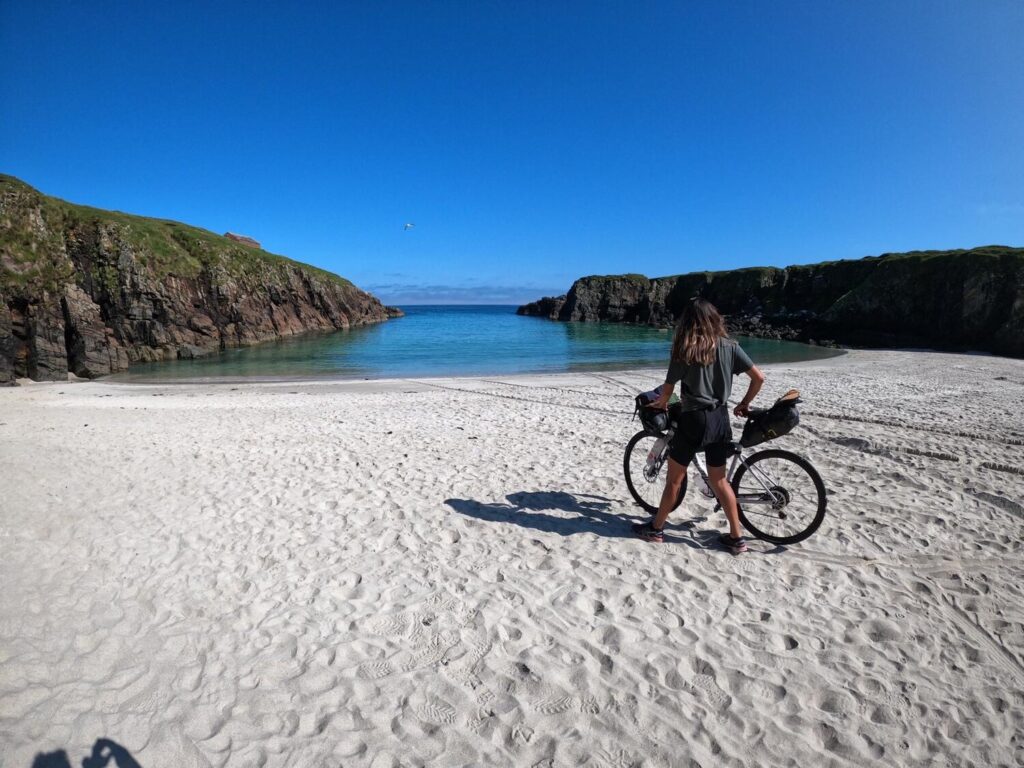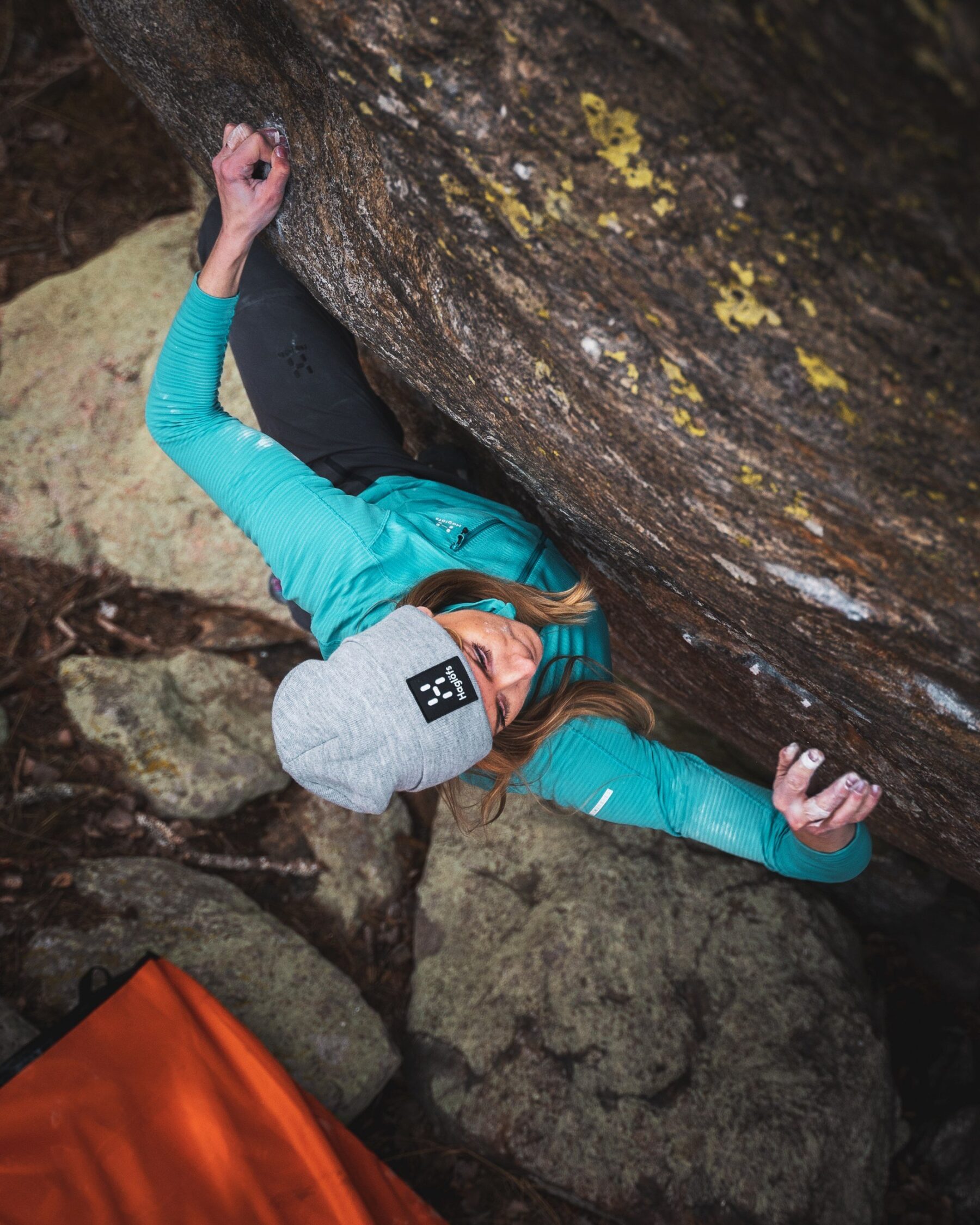The Sea to Me Now
Feature type Story
Read time 11 min read
Published Mar 03, 2021
Author Jess Vyas
Photographer Rory Edwards
“There is nothing staid, nothing settled, in this universe. All is rippling, all is dancing; all is quickness and triumph,.” Virginia Woolf, The Waves.
I’ve become pretty used to starting a piece in this way, bouncing my own thoughts of the words of some great author. Years of responding to literature has made this mode of thinking almost as natural as sensory perception. Before the pandemic, I was an English student in the city of gleaming spires; now, I am a grad back home in Wiltshire. My label is no longer indicative of a current occupation, but rather says what I used to do—before the world slowed down. I picked up a copy of The Waves while revising for finals at the beginning of the first lockdown and Virginia Woolf seemed to know exactly what to say to me: All is rippling, all is dancing, and if you need any further proof of this fact, look to the sea.
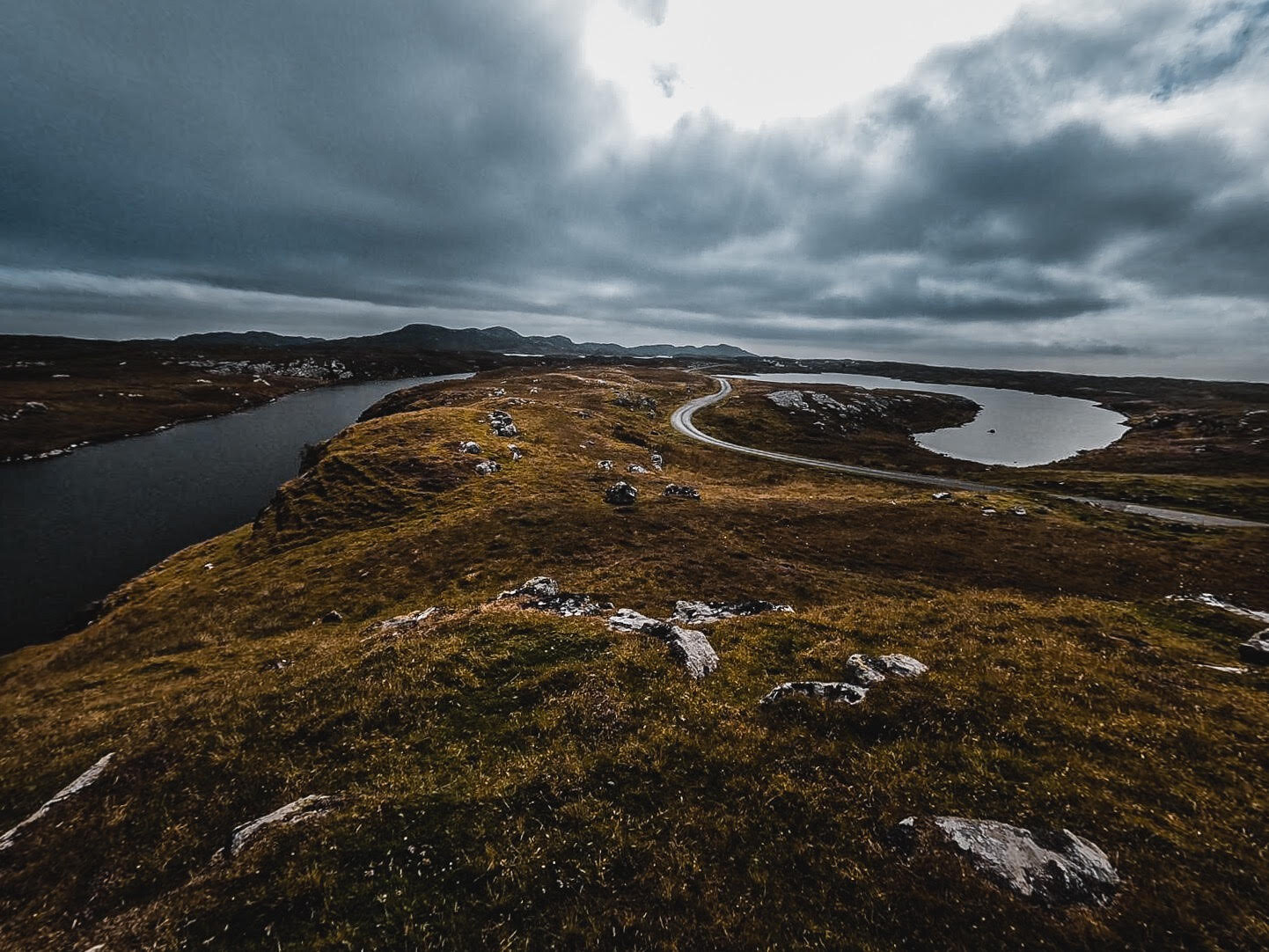
Lochs and marches intersperse large swathes of the islands, twisting land and sea into these intricate patterns.
I spent the summer reconnecting with the sea as an old friend. Unbeknownst to me, I was also reconnecting to an innately childish, earthy part of myself, from whom I felt incredibly distant after three years of academic rigour. Of course, this didn’t happen all by itself. A few weeks after leaving Oxford for the first national lockdown, a dear friend drifted into my life.
Red and I have always managed to just miss each other. We grew up going to the same beach with our families and never met—he was a Dorset local, meanwhile, I was a Wiltshire invader. In later life, we would miss each other again, working consecutive ski seasons in the same resort. Eventually, shared friends, Red’s work as a photographer and the onslaught of Instagram cookies resulted in an online connection. So, when I saw a photo of Kimmeridge Bay on his social media, I messaged him. Knowing he’d been in Switzerland for the season, I was surprised that he was not only back in the UK, but at the very beach I’d grown up digging around in rockpools. We struck up a conversation and, as restrictions began to ease, started to go on some local adventures.
We began toing and froing across the Dorset-Wiltshire border, but quickly developed a preference for the magnitude of the Jurassic Coast. Scrambling through some of England’s most astonishing coastline. The natural world queued up a playlist of sensory glimmers of déjà vu as we embarked on a journey of shared remembering. For Red, it was the sweet stench of wild garlic in the woods beneath an Iron Age hill-fort which prompted a fond retelling of days spent in the woods behind his grandparents’ house as a boy. For me, it was all about Kimmeridge. The first time we rode our bikes down there together, I was briefly at a loss for words. I hadn’t been down to that beach since I was small. I think that memory’s sharp contrast to my current state of peri-adulthood was precisely what felt so good amidst all these very grim and grown-up circumstances. In relief of the enormity of the Atlantic, the two of us could just exist for a moment at the edge of the world.
The bikes, Stella (mine) and Eartha (Red’s), provided a solution to a well-worn problem of almost any adventure enthusiast. As people who spend a lot of time outside, by proxy we care a lot about protecting our environment. We also love to fly further afield in order to chase the seasons and conditions. As a result, we’re a guilt-ridden people, desperate to make our ideals and our desires align whenever possible. The summer saw us both cancel long awaited plans: a return to southern winters in New Zealand for Red, and a road-trip through South Africa for myself. In a summer in which we’d both be seeking out adventure closer to home, Stella and Eartha changed everything.
I took my rage out on aggressive drivers and when that didn’t work, my trip partner seemed like a fair alternative
As we embarked on our travels on two wheels, we quickly discovered that bikepacking wins over backpacking. Every time. You can cover more distance, carry more food and, if you’re going fast enough, tucked under a bungee cord, your soggy swimmers will dry (sort of). The maiden voyage was a bumpy and breathless route along the Jurassic Coast, before shooting for Exeter, crossing Dartmoor East to West, and paying my Grannie the first visit she’d had in months. The road down to Cornwall was rammed by the time we got there, as overnight stays in the UK opened up again. It was a grumpy day. The lactic acid in our legs seemed to have seeped into our tempers. As the more cantankerous party, I took my rage out on aggressive drivers and when that didn’t work, my trip partner seemed like a fair alternative. After an emotional breakdown from me, Red suggested we turn around and head back to Dartmoor for a few days of wild camping in rugged bliss before starting for home.
We spent the night near Burrator Reservoir and lamented the fact that we couldn’t go for a swim or get clean. Unlike the welcoming expanse of the sea, this beautiful lake was tantalisingly close and yet entirely cut off from us. Early the next morning, we found a freshwater stream nearby and revelled in the chance to wash and a group of ponies trotted over to join us. This gesture of welcome from the natural world in a place where she had been made to bend to the will of human inhabitants gave me a sense of camouflage, of almost belonging to their wild existence.
There—the furthest I’d felt from humanity in a long time—I got my finals results, and a few thousand pixels on a cracked screen strung together the worth of three years’ work, which meant I’d be accepting the offer of a grad job in a boarding school come September. Red had an email confirming the dates for the final assessment centre of a corporate job. If successful, this would provoke drastic change to his freelancing career. We were all too aware of own precarious situation. As the country eased out of its slower pace, we too could feel the pull of deadlines our news had automatically set. We turned off our phones and tried to ignore our responsibilities, surrendering to the ephemeral sense of wonder we’d come to expect on the bikes. I suspect Red was a lot better at shutting out the external world and remaining present. For me, the minutiae of graduate expectations were all too near in my unsettled mind.
Originally, we’d planned an epic ramble from coast to coast: taking the legendary established route from Lands’ End to John O’Groats, we’d decided to introduce a detour to the Outer Hebrides and as much gravel and single-track as possible. But ‘real life’ got in the way; Red’s assessment dates prevented us from taking the three weeks we’d wanted to conduct the trip at no pace, without rushing and with plenty of time to read, write and record the gorgeous scenery we’d be witness to. Now, having to drastically cut the trip short, it seemed obvious to us that the sections we most wanted to explore were the South-West coastal route—to go see Gran, and to get in touch with the outrageously beautiful landscapes on our doorsteps—and the enticing wilderness of the string of islands out in the North Atlantic.
The first trip taught us what we were capable of, both physically and emotionally, where each other’s limits lay, and how to deal when one of us had met our edge. The second voyage would prove to be as much a journey of introspection as one of forward movement.
I began the final trip of the summer in a state of mute anxiety. Previously, we’d been floating in submission to the elements, ready to receive whatever the journey threw at us; now, due to the pandemic, we had deadlines at every stage of the meticulously planned tour. The usually open-ended tickets of Hebridean ferries were replaced by stringent and infrequent timings, requiring weeks of pre-booking, as the start dates of mine and Red’s new careers loomed in close proximity. I found it hard to ignore the reality that my newfound freedom was coming to an end.
We packed the bikes in my hatchback and drove to Glasgow to stay with Red’s brother for the night. The next day, we left the car and hopped on a train to Oban. By the time we reached the first ferry port, I’d decided to switch my phone off for the week. Outright denial of the future seemed as good an approach as any.
Dolphins nipped at the wake of the ferry, putting on a show for us landlubbers. Faint shadows in the distance began to reveal themselves as Precambrian peaks rising up out of the sea. Repeating the same observation time and again, I annoyed Red for a while, noting the resemblance of these uninhabited isles as sleeping giants. Unperturbed by my exasperated audience, I continued to make the same comments all week, adamantly awaiting a response. We spent the crossing outside on the viewing deck, letting the salt bed down into our skin and hair, and allowing our eyes to widen in awe at this wild and ancient place.
The sun was low over Castlebay by the time we reached Barra, and I’d lost all concern for September. We spent the first night camping above a pristine west-facing beach on Vatersay. Beyond excited, I crashed into the sea like a frenzied spaniel and let the cool sting of her embrace cleanse me of the prior weeks’ tension—I was reminded of my continual gratitude for cold water’s ability to access mental clarity
Outright denial of the future seemed as good an approach as any
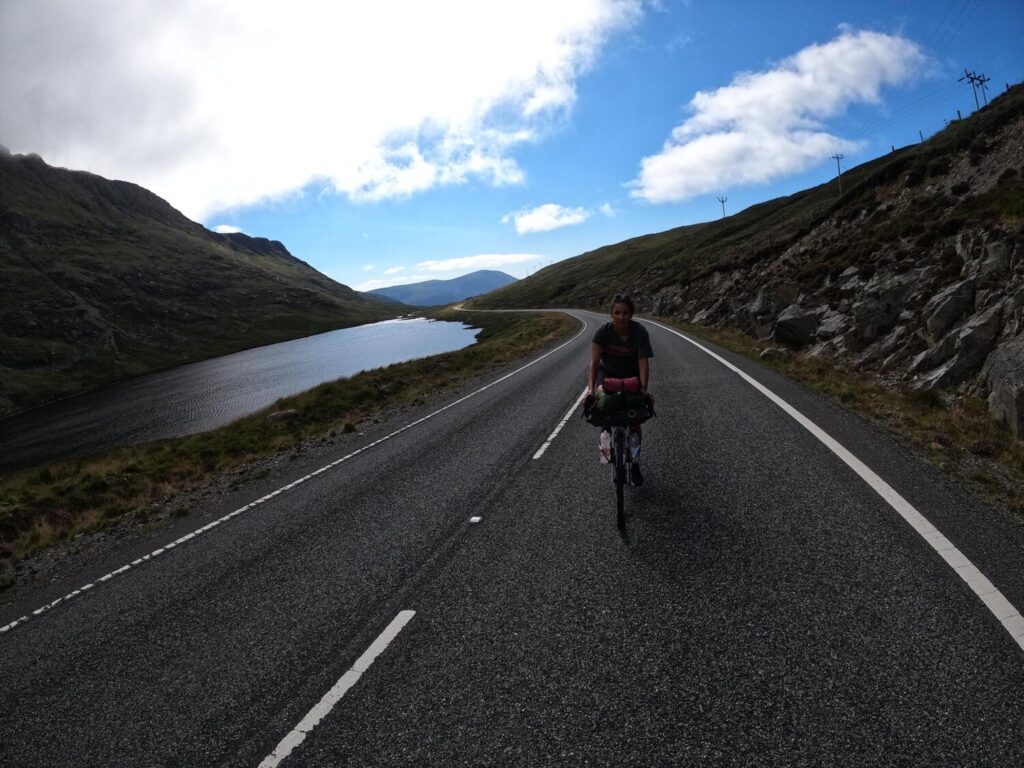
Between Harris and Lewis lies the only real climb of the Hebridean Way. The landscape transforms completely as the white sandy beaches of Harris turn into hills and lochs in keeping with mainland Scotland.
Life becomes more immediate on an unsupported expedition. It isn’t possible to ignore the demands of your body on these trips, when your imagination invests so much on your ability to keep going. When thirst, hunger and fatigue become real threats to your body, your mental bandwidth shrinks. You can’t worry about the future because you have to worry about fixing a puncture, riding the miles, finding clean water and a camp spot with enough wind to keep the midgies away. Get those physical demands right, and you’re onto some winning conditions for a focused mind.
On the islands, the network of rivers, lakes and streams never truly leave the sea. The salt gets into everything. You can taste it in the air and feel its crust on your lips. The locals’ cars at the mercy of fast forming rust. Looking back on these photos, the intertwining patterns of land and sea serve as a reminder that when life is lived in cohesion with the natural rhythms of the ocean, there is nothing staid, nothing settled, and the small stuff wanes in comparison.
Don’t miss a single adventure
Sign up to our free newsletter and get a weekly BASE hit to your inbox
You might also like
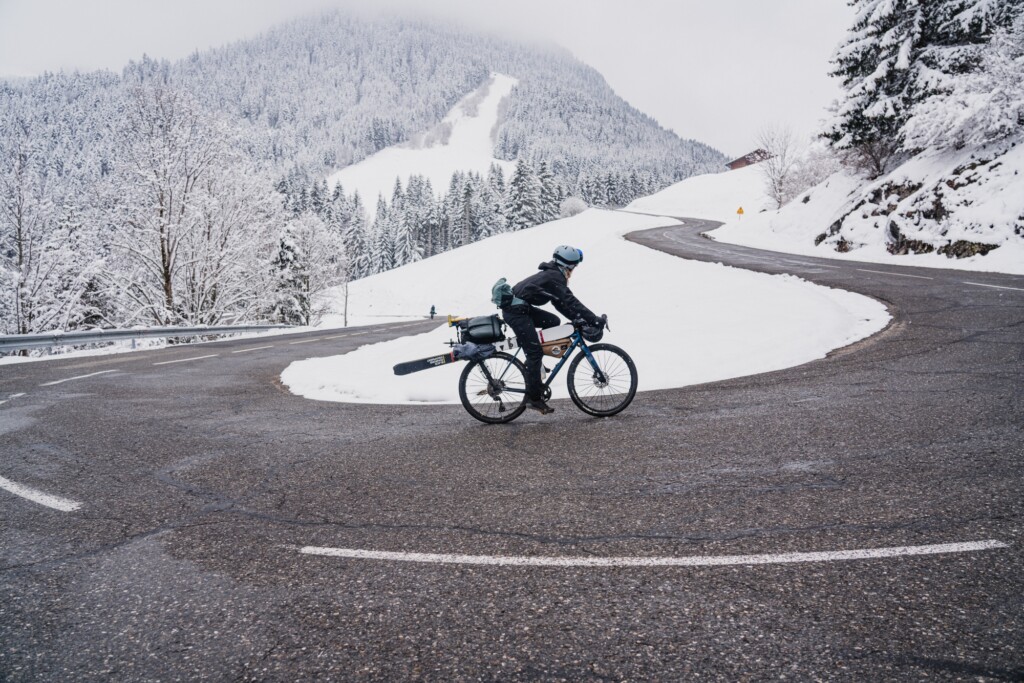
Story • Gaby Thompson • Jun 26, 2023
Bike. SKi. Fondue. Repeat
A backyard adventure with close friends in the French Alps

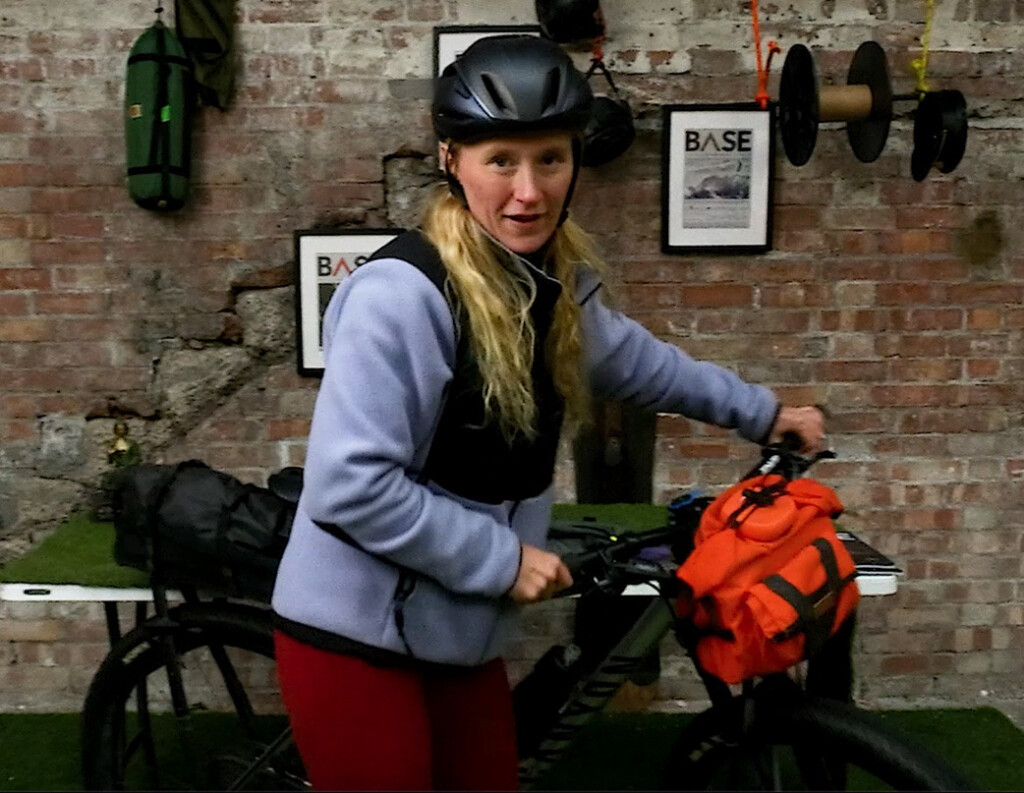
Video • BASE editorial team • May 26, 2023
Top Five Bikepacking Essentials Every Rider Needs To Know About
Don't leave home without these must-have bits of bikepacking kit
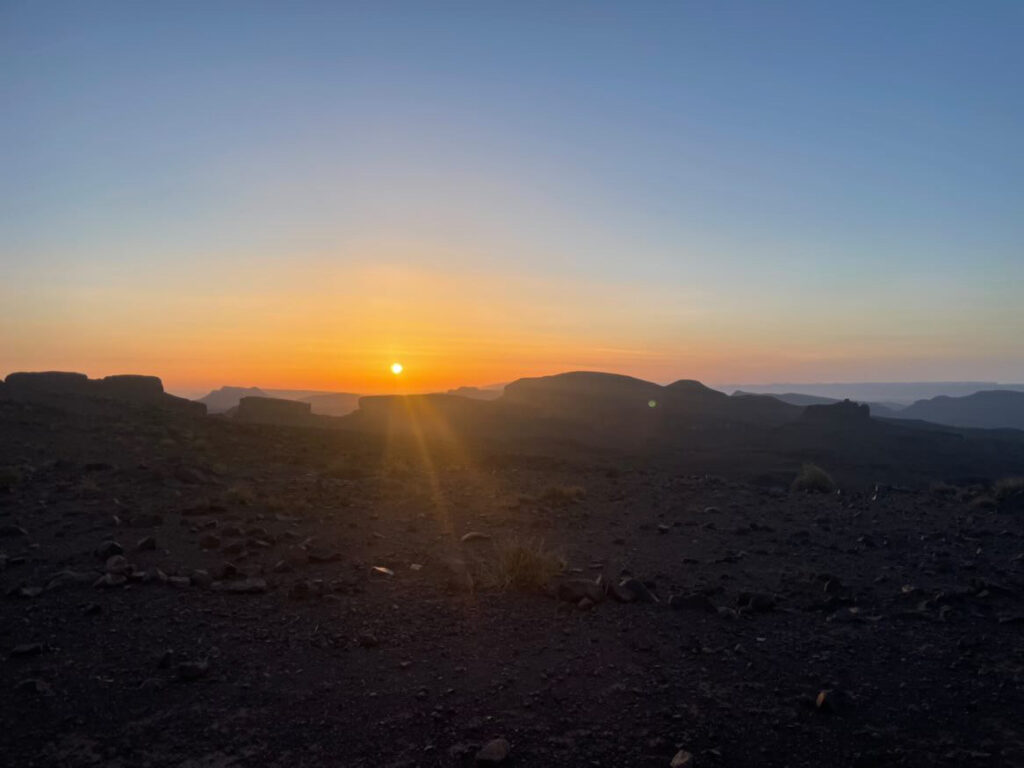
Story • Charlie Bell • Apr 06, 2023
The Highs and Lows of Cycling 1300km Through The Atlas Mountains
The Atlas Mountain Race is a brutal bikepacking race across Morocco's sand-strewn deserts and snow-capped mountains
